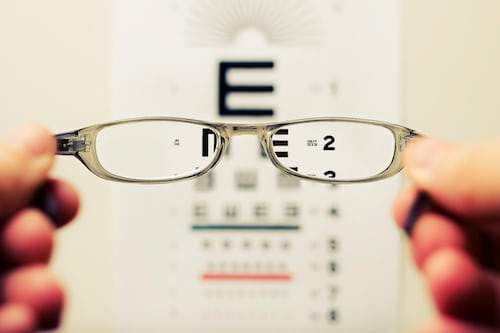Is Bad Eyesight Genetic?
There are many characteristics that we inherit from our parents, including our hair, skin, and eye color, in addition to certain illnesses and diseases that can be passed down through our genes, including our vision. We can have a significant influence on the quality of our eyesight through genetics, as well as through environmental factors. Our genetic predispositions may be impossible to overcome, but we can take steps to prevent certain eye diseases as much as possible by maintaining a healthy lifestyle.
A recent study has demonstrated that you have a 1 in 3 chance of developing myopia (short-sightedness) if both your parents are myopic too. This figure decreases to 1 in 5 if only one of your parents is myopic. It is evident that our genes influence our eyesight, even though our environment and lifestyle play a significant role as well. However, if neither of your parents is myopic, you have less than a 1 in 40 chance of getting myopic.
What causes bad eyesight?
It is common for people to suffer from poor eyesight due to a variety of eye conditions and diseases, and the majority of these conditions and diseases are hereditary. Refractive errors are usually caused by myopia, hyperopia (long-sightedness), or astigmatism. Refractive errors occur when light cannot be focused directly on the retina by the eye.
It is important to point out that in addition to the conditions mentioned above, there are also certain eye diseases that are hereditary and can, unfortunately, lead to deterioration of your vision. These diseases include:
-
Age-related macular degeneration (AMD): Macular degeneration is an aging-related condition which can lead to gradual reductions in visual acuity over time. AMD affects the macula in the eye, which is the central part of the retina that preserves sharpest vision. It is the macula that determines our ability to recognize faces, read, drive, and perform other precise visual tasks. From the age of 40, having a family history of AMD increases your risk of developing the disease, according to the American Optometric Association (AOA).
-
Glaucoma: Glaucoma is an eye disease that is caused by an increased level of pressure in the eyes. It is possible for the optic nerve to be damaged when fluid within the eye begins to build up and not drain properly, which can increase the pressure within the eye. Glaucoma is a disease in which blood does not flow to the optic nerve. Glaucoma can be a very dangerous disease, as it does not usually show symptoms until considerable damage has been done to your vision. Glaucoma development is significantly increased in individuals who have a hereditary predisposition to the disease, or who have a family history of it.
-
Retinitis pigmentosa (RP): A degenerative disease of the retina, Retinitis pigmentosa can result in the loss of retinal cells, eventually leading to vision loss. Research indicates that RP is caused by a mutation in a gene that can be inherited through an X chromosome, and the first symptoms of the disease are tunnel vision and night blindness, and eventually the disease leads to loss of central vision as well. The chances of a child being affected by RP are 25% if both parents carry the gene. They still have a 50% chance of being carriers of the gene, even if they are not affected themselves. There are approximately 1 in every 3,500 people who suffer from the disease, with many others carrying the mutated gene.
Environmental Factors that can affect your eyesight
A person’s ability to see is influenced by a number of factors, including his or her genes, as well as environmental factors. Our blog here discusses how overexposure to UV rays from the sun can also lead to cataracts, macular degeneration, and cancer. As well as damaging your eyesight and eye health, smoking is four times more likely to cause you to become blind when compared to those who do not smoke.
What can I do to maintain my eye health and vision?
Unfortunately, we cannot control our genetics and how they affect us, but we can take good care of our health to prevent these eye conditions and diseases from developing. It is important to maintain good vision and eye health by eating a healthy, balanced diet, drinking enough water, and getting a good night’s rest. You can prevent certain eye diseases by eating a diet that contains orange fruits, vegetables (such as carrots) and fish, and you can reduce your risk of developing dry eyes by staying hydrated.
You should consult an eye doctor if you suspect that you may be at risk for eye diseases if there is a history of eye diseases in your family.
















